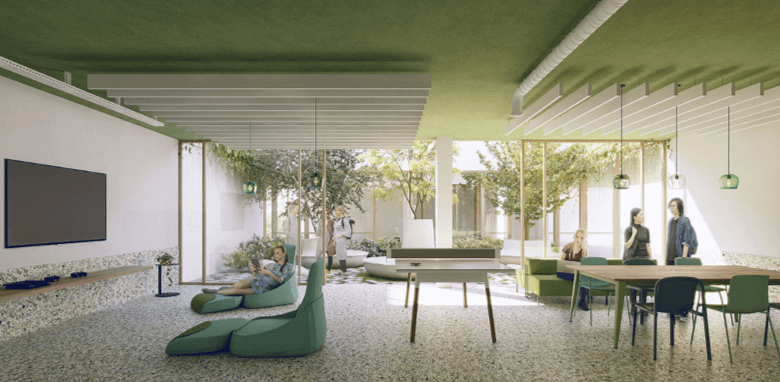Modern:0aqg0rcl_H0= Mental Institution

The evolution of Modern:0aqg0rcl_H0= Mental Institution reflects a profound shift towards patient-centered care, blending innovative treatment methodologies with a commitment to community integration. As these facilities prioritize holistic approaches, such as teletherapy and art therapy, they aim not only to enhance individual recovery but also to redefine societal perceptions of mental health. However, the journey toward a stigma-free environment remains fraught with challenges, prompting an exploration of how these institutions can further adapt to meet the complexities of mental wellness in an ever-changing landscape. What implications does this hold for the future of mental health care?
Overview of Modern Mental Institutions
Modern mental institutions have evolved significantly from their historical counterparts, shedding the stigma and outdated practices that once defined them.
Contemporary facilities prioritize patient care through thoughtful facility design, fostering environments that promote healing and comfort. Enhanced staff training emphasizes communication and empathy, while community integration initiatives encourage social connections, ultimately supporting patients’ journeys toward recovery and autonomy in a more compassionate, understanding society.
Innovative Treatment Approaches
The evolution of mental institutions has paved the way for the adoption of innovative treatment approaches that prioritize individualized care and holistic healing.
Teletherapy advancements have expanded access to mental health services, enabling patients to receive support remotely.
Concurrently, art therapy fosters self-expression and emotional processing, empowering individuals to explore their feelings creatively, thus enhancing their overall therapeutic experience and promoting personal freedom.
Read Also Background:6vtwpbgqdem= Breast Cancer Awareness

Redefining Stigma in Mental Health
Stigma surrounding mental health constitutes a significant barrier to treatment and recovery, often perpetuating misunderstandings and discrimination against individuals experiencing mental health challenges.
Effective stigma reduction strategies are crucial for reshaping public perception, fostering an environment where individuals feel empowered to seek help.
The Future of Mental Wellness
Amidst the evolving landscape of healthcare, the future of mental wellness is increasingly characterized by a holistic approach that prioritizes prevention, early intervention, and personalized care.
Digital therapy platforms enhance accessibility, while community support fosters connection and resilience.
Conclusion
Modern:0aqg0rcl_H0= Mental Institution have evolved into compassionate sanctuaries, prioritizing patient-centered care through innovative treatment modalities and community integration. The transition from outdated asylums to dynamic healing environments reflects a profound societal commitment to mental wellness. By dismantling stigma and fostering connections, these institutions empower individuals to reclaim their narratives. As the journey toward comprehensive mental health continues, the legacy of past injustices serves as a poignant reminder that every mind deserves a safe harbor, free from the shadows of neglect.






